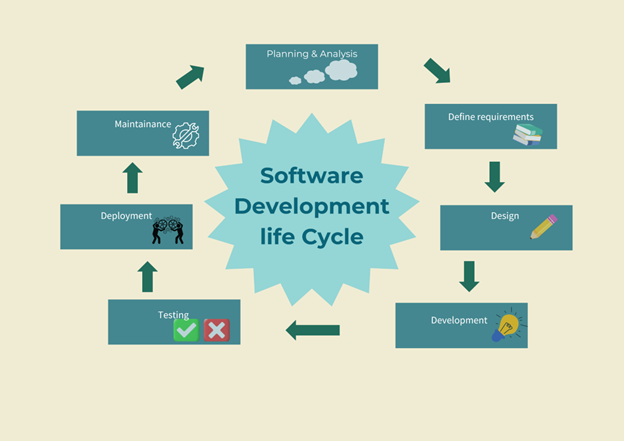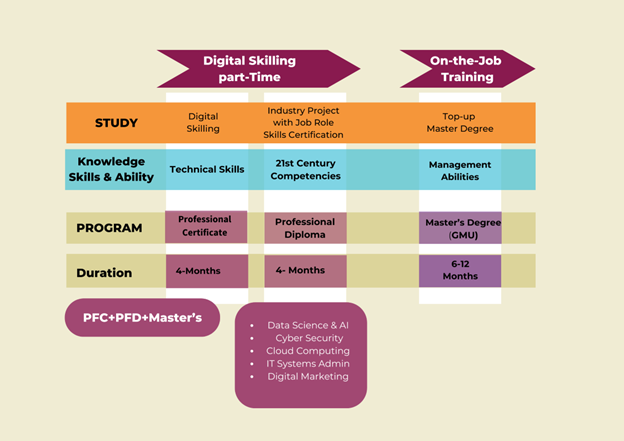Blog
10 Proven Strategies to Elevate Your Software Engineering Career

Introduction
In the digital age, software engineering stands as a pillar of innovation and technological advancement. As industries across the globe increasingly rely on software solutions, the role of a software engineer has become indispensable. Whether you’re an aspiring software engineer or a seasoned professional seeking to hone your skills, understanding the foundational principles and emerging trends in software engineering is crucial.
These 10 proven strategies can significantly enhance your career prospects, especially for those looking to pursue a master’s program. Such programs, like the international work-study degree from eduCLaaS, offer a unique opportunity to gain global experience, learn from diverse perspectives, and apply cutting-edge technologies in real-world settings. This comprehensive guide will delve into the core concepts, best practices, and innovative technologies that shape the world of software development today, equipping you with the skills needed to thrive in this dynamic field.
1. Master Core Concepts
Software engineering is a multidisciplinary field that blends engineering principles with software development practices to create efficient, scalable, and reliable software solutions. Key components of this field include:
- Algorithms and Data Structures: These are essential, as they form the backbone of efficient software design. They enable engineers to create solutions that are not only effective but also optimized for performance.
- Software Design Patterns: These are tried-and-true solutions to common software design problems. Understanding patterns such as Singleton, Observer, and Factory can improve code reusability and maintainability.
- Software Architecture: A robust architecture lays the groundwork for scalable and maintainable software systems. Engineers must be adept at designing architectures that can adapt to evolving business needs and technological advancements.
You can start learning these core concepts through programs here at eduCLaaS International Master’s Degree. These programs are designed to accommodate beginners, providing structured learning paths and hands-on experience to ensure that anyone with ambition and dedication can gain the necessary skills to become proficient software engineers.
2. Understand the Software Development Lifecycle (SDLC)
The Software Development Lifecycle (SDLC) is a structured process used by software development organizations to design, develop, test, deploy, and maintain high-quality software. It provides a systematic approach to software development, ensuring that the final product meets user requirements and is delivered within time and budget constraints. Key Phases of the SDLC:


3. Agile methodologies in Software Engineering (Agile Framework)
Agile methodologies provide a flexible, iterative approach to software development. In eduCLaaS International Master’s degree we emphasize collaboration, adaptability, and rapid delivery, making them ideal for the dynamic nature of modern software projects. Agile methodologies break down the development process into smaller, manageable units, allowing teams to adapt to changes quickly and deliver functional software incrementally.
- Scrum is one of the most popular Agile methodologies. It focuses on delivering small, functional pieces of software through time-boxed iterations known as sprints.
- Kanban emphasizes visualizing work, limiting work-in-progress, and maximizing flow efficiency. By using a Kanban board, teams can visualize their workflow, identify bottlenecks, and streamline processes.
- Extreme Programming (XP) aims to improve software quality and responsiveness through a set of engineering practices. These include test-driven development (TDD), pair programming, and continuous integration.
Understanding and implementing Agile methodologies is a crucial skill for any software engineer. Our software engineering master’s degree covers these methodologies in detail, providing students with the knowledge and tools they need to excel in Agile environments in relevance to their projects. The module includes hands-on exercises and real-world case studies, ensuring that students can apply what they learn in practical settings.
4. Explore Artificial Intelligence and Machine Learning
AI and ML are revolutionizing software engineering by automating tasks, enhancing user experiences, and enabling data-driven insights. Understanding AI algorithms, neural networks, and deep learning can empower engineers to develop intelligent applications.
Understanding and implementing AI and ML is a crucial skill for any software engineer. By mastering AI and ML, you can develop intelligent applications that can automate tasks, enhance user experiences, and provide data-driven insights. This can significantly improve operational efficiency and make a real impact through project-based learning.
eduCLaaS’ international work-study degree provides comprehensive coverage of these technologies, equipping you with the skills needed to harness the full potential of AI and ML in software engineering.
5. Utilize Cloud Computing
Cloud computing offers scalable, flexible, and cost-effective solutions for software deployment and management. Familiarity with platforms like AWS, Azure, and Google Cloud is increasingly crucial for modern software engineers.
6. Implement DevOps Practices
DevOps integrates software development and IT operations to shorten development cycles, increase deployment frequency, and deliver high-quality software. Proficiency in tools such as Docker, Kubernetes, and Jenkins are valuable for engineers looking to streamline workflows and improve collaboration.
7. Enhance Communication and Teamwork
While technical expertise is vital, software engineers must also cultivate a range of soft skills to thrive in the industry.
- Communication: Effective communication is essential for collaborating with cross-functional teams, understanding client needs, and conveying complex technical information clearly.
- Problem-Solving: Engineers must be adept at identifying issues, analyzing problems, and devising innovative solutions.
- Critical Thinking: The ability to evaluate information logically and make informed decisions is crucial in a fast-paced, dynamic environment.
- Teamwork: Collaboration is key in software engineering, where projects often involve multiple stakeholders and require collective effort.
Our International Work-Study Master’s Degree program offers personalized mentoring and engaging in real-world projects as part of its learning framework. You can benefit from one-on-one mentoring sessions that are integrated into your coursework, allowing you to receive tailored advice and support for both your technical and soft skills.
8. Identify Your Career Path
Software engineering offers a diverse range of career opportunities, each with its unique set of skills and responsibilities.
- Software Developer: Focuses on writing and testing code to create software applications.
- System Architect: Designs the overall structure of software systems, ensuring they meet business and technical requirements.
- Project Manager: Oversees software development projects, ensuring they are completed on time, within scope, and within budget.
- Technical Lead: Guides and mentors development teams, ensuring adherence to best practices and high-quality code.
9. Commit to Lifelong Learning
In the rapidly evolving field of software engineering, continuous learning and professional development are essential for staying relevant and competitive.
- Industry Conferences and Networking: Attending industry conferences and networking events provides opportunities to learn from experts, discover new technologies, and connect with peers.
- Coding Challenges and Open-Source Contributions: Participating in coding challenges and contributing to open-source projects allows engineers to hone their skills, gain practical experience, and build a portfolio of work.
- Certifications and Advanced Degrees: Obtaining certifications in specific technologies or pursuing advanced degrees can enhance credibility and open doors to new career opportunities, especially an international master’s degree.
10. Enroll in Specialized Courses
At eduCLaaS, you’ll start with a Professional Certificate, Professional Diploma then finish up with a Master’s Degree Top-up. This 3 –Step Integrated Work Journey is designed to equip you with the skills to develop skills in software engineering where you b ecome an experienced future ready digital talent with skills certification and master’s degree credentials in 4-20 months.


Conclusion: Your Software Engineering Journey
Mastering software engineering is a continuous journey that requires dedication, adaptability, and a commitment to learning. By embracing the fundamentals, staying abreast of emerging technologies, and cultivating both technical and soft skills, you’ll be well-equipped to navigate the dynamic landscape of software development and make a lasting impact in your chosen field.
Start mastering the skills of tomorrow. Join a community of passionate learners and industry experts committed to driving innovation and excellence in software engineering. Find out more about our International work-study master’s degree in AI Application Development, here.


































